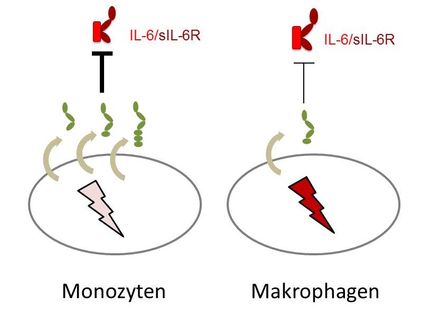New Phase II data show Novartis' ACZ885 gave better pain relief and flare prevention for patients with chronic gout
Advertisement
New Phase II results show that the novel biological therapy ACZ885 (canakinumab) is significantly more effective than an injectable corticosteroid at reducing pain and preventing recurrent attacks or 'flares' in patients with hard-to-treat gout, one of the most painful forms of arthritis. The study met its primary endpoint by showing that during acute gout flares, ACZ885 reduced pain faster and more effectively than the injectable corticosteroid triamcinolone acetonide, a potent steroid with sustained effect used to treat severe inflammatory conditions (p<0.05). At the end of the eight-week study, the risk of flare recurrence was 94% less for patients on ACZ885 than on the steroid (p=0.006). The results were presented at the American College of Rheumatology (ACR) Annual Scientific Meeting in Philadelphia, USA.
"If not appropriately treated, gout can be a devastating condition. Current therapies can have limited efficacy and tolerability, and may be unsuitable for some patients," said Professor Alexander So, MD, Department of Rheumatology at the University of Lausanne, Switzerland. "These results are important as they indicate that canakinumab may provide significant benefit in both the prevention and treatment of painful acute flares in these hard-to-treat patients."
ACZ885 is a fully human monoclonal antibody which blocks the action of the inflammatory protein interleukin-1 beta (IL-1 beta). It has already been approved under the brand name Ilaris® in a number of countries for treating cryopyrin-associated periodic syndrome (CAPS), a rare life-long auto-inflammatory disease with debilitating symptoms and few treatment options.
Studies with ACZ885 are ongoing in other diseases in which IL-1 beta plays an important role, such as chronic obstructive pulmonary disease (COPD), type 2 diabetes and systemic juvenile idiopathic arthritis (SJIA). Not all potential patients with these diseases would be eligible for treatment with ACZ885, if approved.
Most read news
Topics
Organizations
Other news from the department research and development

Get the life science industry in your inbox
By submitting this form you agree that LUMITOS AG will send you the newsletter(s) selected above by email. Your data will not be passed on to third parties. Your data will be stored and processed in accordance with our data protection regulations. LUMITOS may contact you by email for the purpose of advertising or market and opinion surveys. You can revoke your consent at any time without giving reasons to LUMITOS AG, Ernst-Augustin-Str. 2, 12489 Berlin, Germany or by e-mail at revoke@lumitos.com with effect for the future. In addition, each email contains a link to unsubscribe from the corresponding newsletter.


























































